Stranded

Brief Synopsis
Cast & Crew
Frank Borzage
Kay Francis
George Brent
Patricia Ellis
Donald Woods
Robert Barrat
Film Details
Technical Specs

Synopsis
Lynn Palmer, a worker with the Travelers' Aid Society in San Francisco, is asked to share her apartment with Velma Tuthill, a socialite whose mother has donated a great deal of money to the Society. Velma is only interested in the job because it provides a way to meet her boyfriend without her mother's knowledge. Engineer Mack Hale meets both women when he comes to the Travelers' Aid station in search of his best steel worker, Stanislaus Janauschek. Although Velma flirts with Mack, he and Lynn recognize each other as childhood sweethearts and make a date for that evening. Mack, who is superintendent of the Golden Gate Bridge project, is threatened by Sharkey, a racketeer who demands protection money. When Mack refuses, Sharkey pays some of the workers to get their crew drunk while they are on the job. As a result, one of the drunken men falls to his death and Mack fires all the men who were drinking. Meanwhile, Mack and Lynn fall in love, but quarrel when she refuses to give up her job to marry him. Lynn learns that the bridge workers plan to hold a strike meeting to get rid of Mack and when he will not attend to defend himself, she faces the workers alone. At the last minute, Mack finds a worker who tells the others the truth about Sharkey and the strike is averted. Mack now understands the value of Lynn's work and they are reunited.

Director

Frank Borzage
Cast

Kay Francis
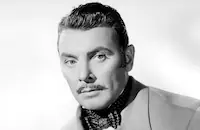
George Brent
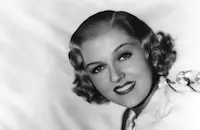
Patricia Ellis
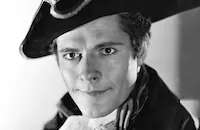
Donald Woods

Robert Barrat
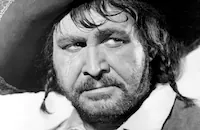
Barton Maclane

Joseph Crehan
William Harrigan
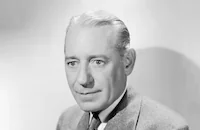
Henry O'neill

Frankie Darro

John Wray

Edward Mcwade

June Travis
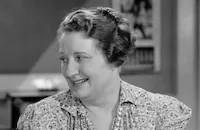
Ann Shoemaker

Gavin Gordon
Spencer Charters
Joan Gay

Shirley Grey

Mae Busch
Mary Forbes
Florence Fair
Pat Moriarity
Crew

Videos
Movie Clip



Film Details
Technical Specs

Articles
Stranded
Despite the often clichéd and formulaic scripts she was given by the studio, which were mostly soap operas, tearjerkers and romantic dramas, Francis still managed to display her versatility in a variety of films that deserve to be better known today such as the delightful caper comedy Jewel Robbery (1932), the exotic Pre-Code melodrama Mandalay (1934) and the offbeat espionage thriller British Agent (1934). But there are plenty of lesser known efforts in her filmography that deserve rediscovery and one of the most intriguing is Stranded (1935), a curious blend of romance, New Deal optimism, and crime drama directed by Frank Borzage and pairing Francis with George Brent, who first appeared with the actress in The Keyhole (1931). (Brent would soon become Bette Davis's leading man of choice at Warner with that actress replacing Francis as the queen of the lot).
In Stranded, Francis plays Lynn Palmer, an employee in the San Francisco branch of the Travelers' Aid Society, a charitable organization which was first formed in St. Louis, Missouri in the 19th century to aid travelers and immigrants who became stranded during their journeys. Lynn is dedicated to her work and fulfilled by it but experiences some friction in her life when she agrees to let Velma (Patricia Ellis), the spoiled daughter of a rich socialite, work with her and share her apartment. The relationship between the two women becomes increasingly strained when both women vie for the attention of Mack Hale (George Brent), the superintendent of the Golden Gate Bridge project, who comes to Travelers' Aid in search of a missing steel worker. Upon first meeting the sparks fly between Lynn and Mack and they appear to be an ideal match...except for their opposing ideologies. As their mutual attraction escalates into a passionate battle of the sexes, Mack also becomes embroiled in a war against corrupt racketeers who try to force him to pay protection from the mob on his bridge construction.
Despite its episodic structure and multiple subplots, Stranded offers an unmistakably feminist point of view (for a Hollywood movie) in its depiction of Lynn and her unyielding commitment to her work and career. Despite her great love for Mack, she can't understand why she should give up her volunteer work to become a full time wife. Mack, on the other hand, has little sympathy for the helpless and homeless recipients of the Travelers' Aid program and only respects those who are self-motivated and work hard for a living. He can't comprehend her refusal to quit the organization, saying, "There's work to be done. Work so hard that I need all of you when I come home. What kind of life would we have if one night I'm working and the next night you're working and the next night we're both all in? You won't have to be mixed up in this useless madhouse job of yours."
Although it might not rank among the best films of that great romanticist of the cinema, Frank Borzage, who gave us 7th Heaven [1927), Street Angel (1928) and Man's Castle (1933), Stranded (1933) represents a favorite thematic concern of the director - the transformative power of love and how it can triumph over adversity. In this case, Lynn and Mack are two strong willed, fiercely independent people who discover a more complete and desirable identity through their romance. Class differences and the social and political climate of the time were also concerns for the director as well (note the rise of fascism depicted in Three Comrades [1938] and The Mortal Storm [1940]) and Stranded is no less a reflection of its era with the Great Depression and FDR's New Deal programs anchoring the film in reality.
Based on the story "Lady with a Badge" by Frank Wead and Ferdinand Reyher, the studio decided that title might lead audiences to expect a movie about a policewoman and changed the name to Stranded. The film was also an attempt to capitalize on the building of the San Francisco-Oakland Bay Bridge (it wasn't completed until 1936) and allegedly Borzage shot some on-location footage of the Bridge that was incorporated into this movie. Borzage's younger brother, Lew, served as assistant director on the film as he would on many of his brother's feature films.
For Kay Francis, Stranded was little more than a routine assignment from her studio but it did introduce her to Delmer Daves, a former property boy turned aspiring screenwriter; it marked the beginning of a long but discreet affair between them. According to Daves in Loretta, Ginger and Irene Who? by George Eells, "Hal Wallis was production head at Warner Brothers during the thirties, and it was he who was Mr. Fate with Kay and me - for he asked me, as a favor, since the writer of Kay's next film had left the lot, to go to her house and rewrite all the lines of the script that had the embarrassing r's which Kay would turn into w's in most instances - such as 'tomowwow' for 'tomorrow.' I hadn't even met her at that time, went to her house, introduced myself and....we hit it off so well I never left, and we were devoted to each other solely for the next three years, traveling together between films....During those years Hedda [Hopper] and Louella [Parsons] (both close friends of ours and very tactful in their reportings of our wanders, etc.) would make us Best Bets in their annual Matrimonial Derby columns." Francis, who had previously been married four times, would tie the knot with husband number five Eric Barnekow in 1939 while Daves would go on to become a highly successful screenwriter and director, who was especially well-known for his Westerns (Jubal [1956], 3:10 to Yuma [1957], The Hanging Tree [1959]).
Stranded was promoted as a "women's picture" and didn't disappoint fans of the actress who enjoyed her high class, fashion conscious heroines. The following comments by The New Yorker reviewer was typical of the film's critical reception: "In Stranded, Kay Francis, known to filmgoers as one of the best-dressed women, appears as a social worker, a prominent executive of the Travelers' Aid...The movies are finding a silver lining ready for them in the labor disputes of the day. Many a plot hangs upon them now, and the agitators may reflect upon the wealth their activities yield to the magnates of Hollywood. The mass meeting in this picture gives Miss Francis a chance, naturally, to run to the front and harangue the men, in a trim tailleur from her celebrated wardrobe. It is after she has calmed their ruffled spirits that she decides to yield to love, to the relief of all who have been agonized by the suspense of her predicament." The reviewer seems to have missed the point, however, that Francis's character has not given up her principles or job for marriage. The fadeout of Stranded makes it obvious that the marriage of Lynn and Mack will be a successful one because they have each other AND their careers. It's an unusually modern ending for a Hollywood romantic drama in the thirties and still topical today.
Producer: Frank Borzage
Director: Frank Borzage
Screenplay: Delmer Daves (screenplay); Carl Erickson (additional dialogue); Frank Wead, Ferdinand Reyher (story)
Cinematography: Sid Hickox
Art Direction: Anton Grot, Hugh Reticker; Arthur Gruenberger (uncredited)
Film Editing: William Holmes
Cast: Kay Francis (Lynn Palmer), George Brent (Mack Hale), Patricia Ellis (Velma Tuthill), Donald Woods (John Wesley), Robert Barrat (Stanislaus Janauschek), Barton MacLane (Sharkey), Joseph Crehan (Johnny Quinn), William Harrigan (Updyke), Henry O'Neill (Mr. Tuthill), Frankie Darro (James 'Jimmy' Rivers).
BW-73m.
by Jeff Stafford
Sources:
Souls Made Great Through Love and Adversity: The Film Work of Frank Borzage by Frederick Lamster (Scarecrow Press)
Kay Francis: A Passionate Life and Career by Lynn Kear and John Rossman (McFarland & Company)
Loretta, Ginger and Irene Who? by George Eells (Putnam)
www.afi.com
The New Yorker
http://baybridgeinfo.org/
IMDB

Stranded
Quotes
Trivia
Notes
Frank Wead's and Ferdinand Reyher's screen story was titled "Lady with a Badge," which was also the film's working title. Variety notes that the title was changed so that people would not assume the film was about a policewoman. The film was planned to capitalize on the contemporary construction of the San Francisco Bay Bridge, and director Frank Borzage shot some scenes on location at the bridge. Modern sources state that Lew Borzage was the assistant director and include the following cast members in the film: Edward McWade (Tim Powers), Burr Carruth (Old man), Emmett Vogan (Officer on ferry), Samuel R. McDaniel (Porter), Harry C. Bradley (Conductor), Eily Malyon (Old maid), John Kelly (Sailor), Edwin Mordant (Surgeon), Harrison Greene (Blustery man), Eleanor Wesselhoeft (Mrs. Young), Wally Wales (Peterson), Wilfred Lucas (Pat, a worker), Glen Cavender (Kolchak), Joe King (Dan Archer), Frank Sheridan (Boone), Emma Young (Chinese girl), Mia Liu (Japanese girl), Rita Rozelle (Polish girl), Louise Seidel (Danish girl), Frank LaRue (Doctor), Lillian Harmer (Desk attendant), Zeffie Tilbury (Old hag), Lillian Worth (Blonde), Georgia Cooper (Floor nurse), Tom Wilson (Immigrant), Philo McCullough (Immigration officer), Adrian Morris (Rivet boss), Milton Kibbee (Pat, the timekeeper), Vesey O'Davoren (Butler), Adrian Rosley (Headwaiter), Junior Coghlan (Page), Jack Richardson, Stan Cavanagh (Taxi drivers), Edwin Stanley (Police surgeon), Edward Keane (Doctor), Niles Welch (Safety engineer), Walter Clyde (Assistant), Marbeth Wright (Operator), Donald Downen (Clerk), Claudia Coleman (Madame), Sarah Padden (Workman's wife), Dick French (Clerk), Jessie Arnold (Scrubwoman), Henry Otho (Worker), Richard Loo (Groom), Frank Marlowe (Rollins, an agitator), Leo White (Haines, a drunken worker).














